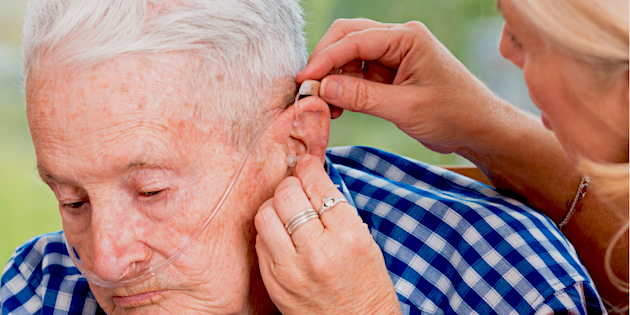Is poor follow-up responsible for 20% of hearing aid owners making no use of their devices?
hearing aids
Amongst some good news on use of hearing aids in the UK, new survey results show that as many as 50% of hearing aid owners do not use their devices most of the time, while 20% never use them.

Further breakdown of the figures reported in the paper published in the International Journal of Audiology reveals that "approximately 20% of adults currently do not use their hearing aids at all, 30% use them some of the time and the remaining 50% most of the time." The survey was carried out by researchers from the University of Manchester jointly with audiologists from the Betsi Cadwaladr University Health Board in North Wales. Their sample, of 10,000 to 16,000 adults per year was extracted from national household survey data, from 2004 to 2018 in Wales, UK.
The good news for advocates of hearing aids in the hearing health sphere is that the proportion of people who claim they did not use their hearing aids over a 15 year period decreased from 21 to 18%, with a commensurate increase in the proportion who reported using their hearing aids most of the time.
Faster, better follow-up and monitoring
But, as the paper's lead author, Professor Harvey Dillon (University of Manchester) points out, research is needed to find the reasons for non-use so quickly setting in for some. And efficient procedures to prevent this also need to be investigated.
“We already know that the largest predictor of hearing aid benefit is the quality of interaction with the health professional, rather than the degree of hearing loss," affirmed Prof. Dillon.
“We think there is a need for more prompt and proactive follow-up and monitoring once a hearing aid has been prescribed and fitted by the NHS,” he continued.
Prof. Dillon's Manchester colleague, Professor Kevin Munro, stressed the urgency of tackling non-use and under-use of hearing aids: "Hearing loss is the most common sensory problem in the world, experienced by one in six people in the UK".
"It has a well-known association with cognitive decline and dementia, and as hearing aids are the primary treatment, can have huge benefit to wearers," added Prof. Munro, co-author of the study, and Hearing Health Theme Lead at the NIHR Manchester Biomedical Research Centre (BRC).
Although the data was extracted from only one territory, Wales, Prof. Munro believes the results can safely be extrapolated to apply to the UK in general.
Source: The University of Manchester
 Sign in
Sign in


